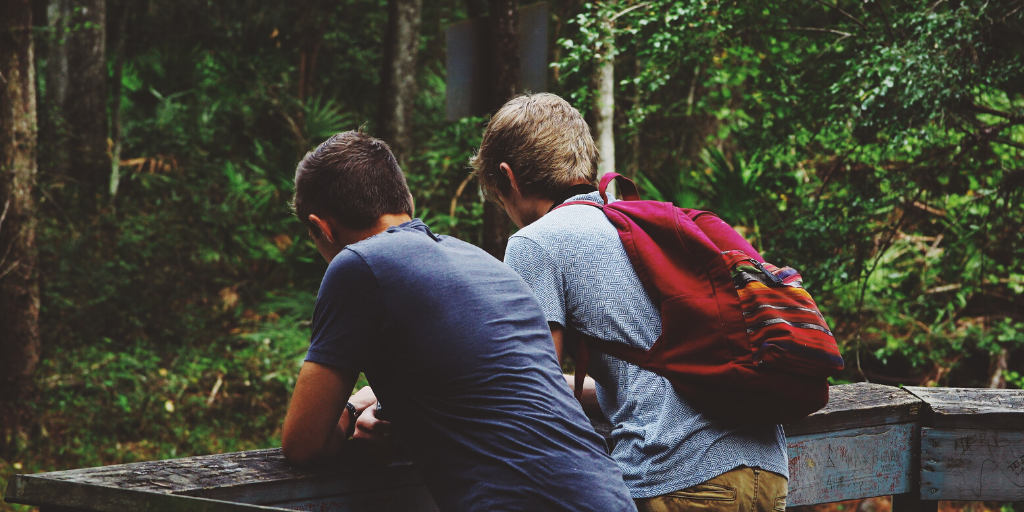Years ago, I took a humble look at my friendships and realized most of them were not working. It was a sad and scary time for me. It meant that I was the one who was going to have to change, and that that change would require letting go of friends — and I would lose a lot of my social contacts and likely deal with loneliness along my path.
There are countless podcasts, books and courses on creating and maintaining healthy intimate relationships, yet there are so few places to seek advice on how to maintain healthy friendships. There are also few sources that define what a healthy friendship looks like.
I had constructed my friendships in a way that left me feeling unaccepted and not good enough. That translated into a deep loneliness that I couldn’t seem to salvage a way out of. I had invested in relationships that were no longer serving me, and I needed to figure out why I’d done that. But that was on me, not them. I had to recognize what parts of myself were attracting relationships in which I felt unheard and was subtly dismissed when I spoke about things that were important to me; I had to work out why I was, sometimes overtly, being excluded from social events.
Why had I attracted friends that wanted me to shut up and show up the way they wanted to see me, instead of friendships that were kind, allowing and open-minded? Part of the reason was that I was judgmental of myself. I felt unworthy and needed desperately to be accepted. That energy brought people into my life that emphasized those feelings. Energy is like that, our thoughts are like that: like attracts like. Negative beliefs attract negative outcomes, positive believes attract positive responses.
When awareness flooded through me, I realized I needed to have grown-up conversations, not just in my intimate relationships, but also in my friendships. In a grown-up conversation you can speak honestly about what you’re feeling, own your emotions and not project them onto others. You can kindly state your expectations and create clear boundaries. Grown-up conversations sometimes mean you get uncomfortable and have to be courageous. Maybe you have a friend who always is showing up at your place, wanting to stay with you, wanting to be hosted, but never bringing anything or contributing anything. You feel this friend is constantly taking from you but never giving: to be ‘grown up’ means we can let these people know how we feel in a kind and honest way.
One caveat to honest conversations; we never know if the other person will meet us where we’re at. Or be willing to hear us or share they’re own thoughts. That’s the reason for courage, just because you’re feeling called to dialogue, it doesn’t mean the other person is able to meet you.
In my friendships, tearing people down or gossiping for the sake of entertainment is a ‘no-go’. That’s a boundary. However, I need friends with whom I can work through problems and claim my frustrations. It’s precarious; being able to speak openly and honestly with a friend in a way that builds the relationship instead of damages it. I believe it requires patience and being gentle. I need to be able to speak honestly about what I want from my friends, able to let them know when and how they can show up for me when I’m struggling and ask the same of them. We will likely need different things, and allowing for those differences is what strengthens a relationship.
The same way we don’t expect (hopefully) our partners, husbands/wives, girlfriends/boyfriends to be all things for us, we should carry a similar expectation of our friends. They can’t have all the qualities we need; some are the ones we call when we want to recreate, others for a fun night out. When we’re on the floor sobbing, feeling dark and scared, there may be one or two people we can call on who can hold us in our darkest of moments. Sometimes we have friends that are the trifecta, those that can meet us on most or all of our needs, yet even with them it’s important to not expect them to be everything.
Moving out of old friendships and making new ones was not an easy transition. It took a great deal of courage and trust. I had to trust that I could create the relationships I wanted. I had to be courageous enough to acknowledge my limiting personal beliefs. I had to work on repairing my worn-out beliefs and improving my inner voice if I wanted to have people in my life that felt like my people. These are the people that would love me even when I wasn’t loveable, allow me to stumble and lack grace and lift me up when I couldn’t do it myself. The kind of friends that would forgive me, and that I could forgive.
It’s still a process for me; making new friends and maintaining friendships is like dating. You have to put the time in, be available, be open hearted, be willing to show up and most importantly, be vulnerable. You never know if you’re going to get your heart broken in intimate relationships or friendships, so there’s a need to trust yourself if things don’t work out. Trust that you have the courage to remain open and honest in order to make the most out of this life.
Maybe it’s worth asking – which of your friendships are honest?
With love, Noelle

